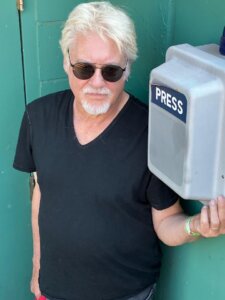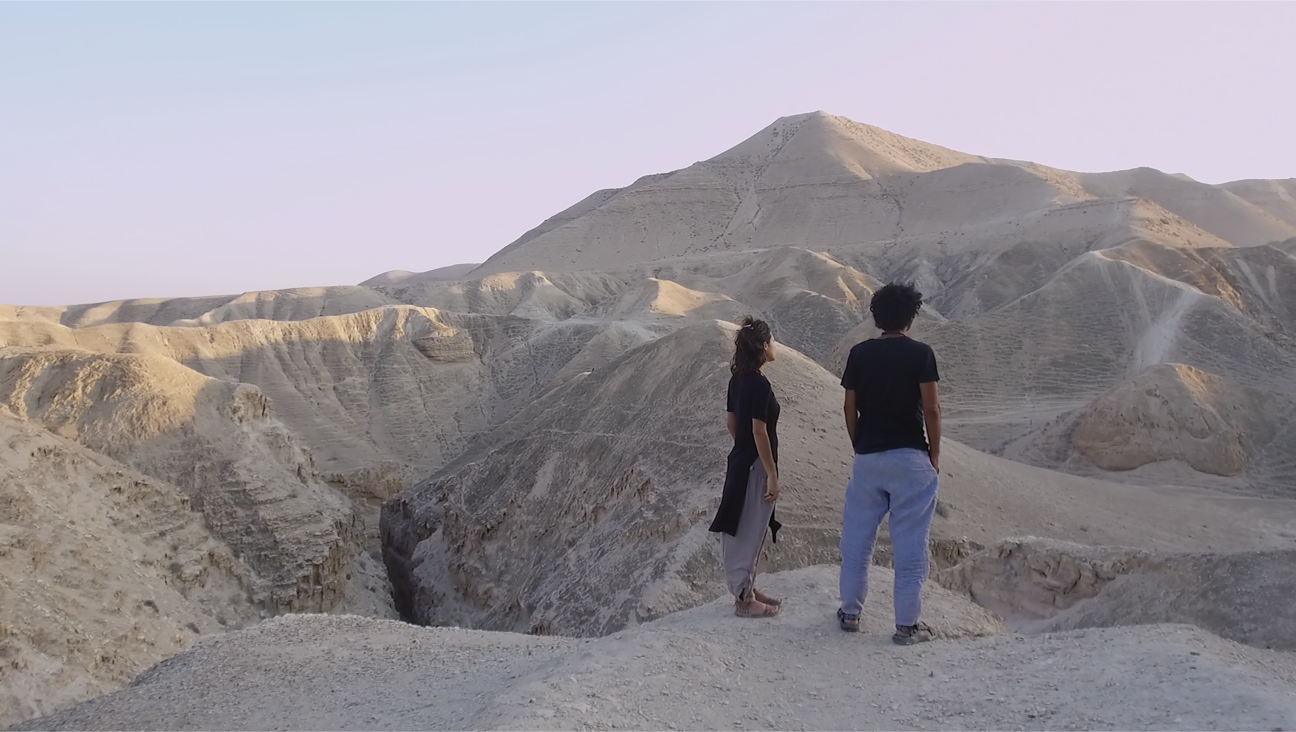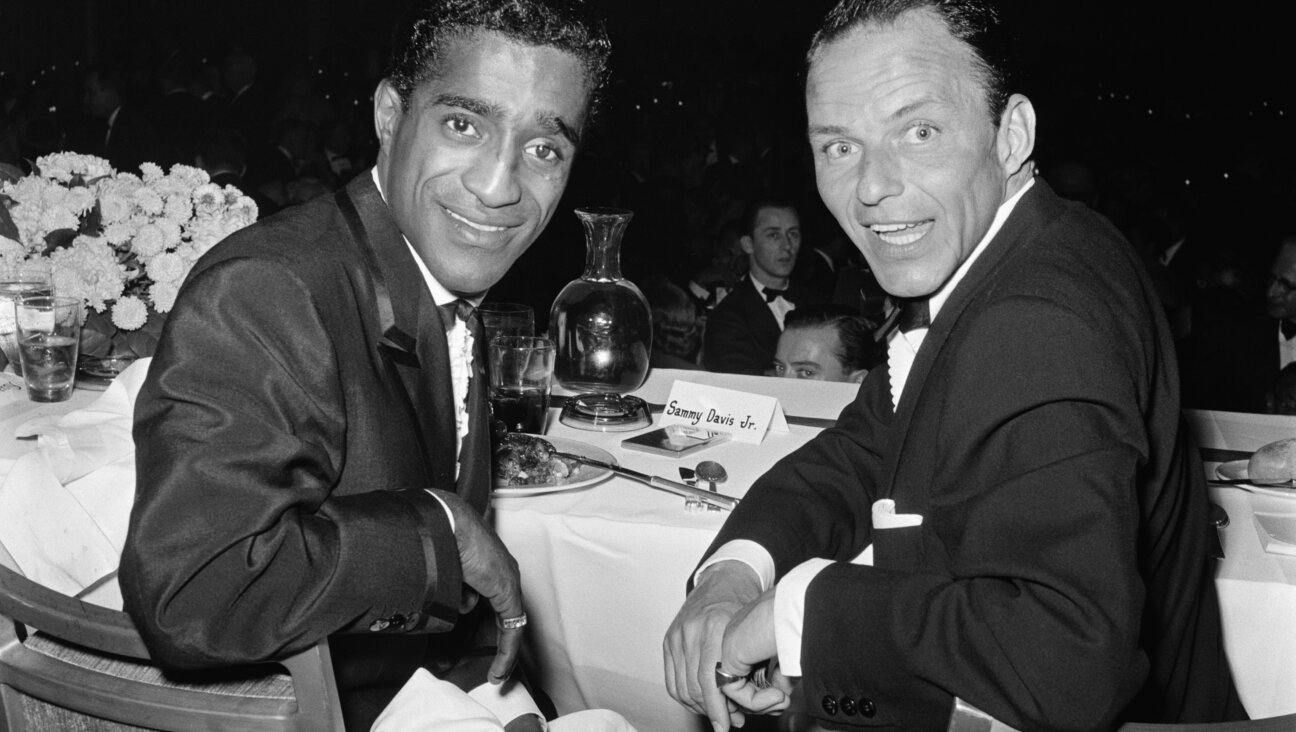Baseball’s Jewish iron man has played 21 straight seasons for the Red Sox and hasn’t missed a single game
Fenway Park’s Josh Kantor is the Cal Ripken Jr. of organists
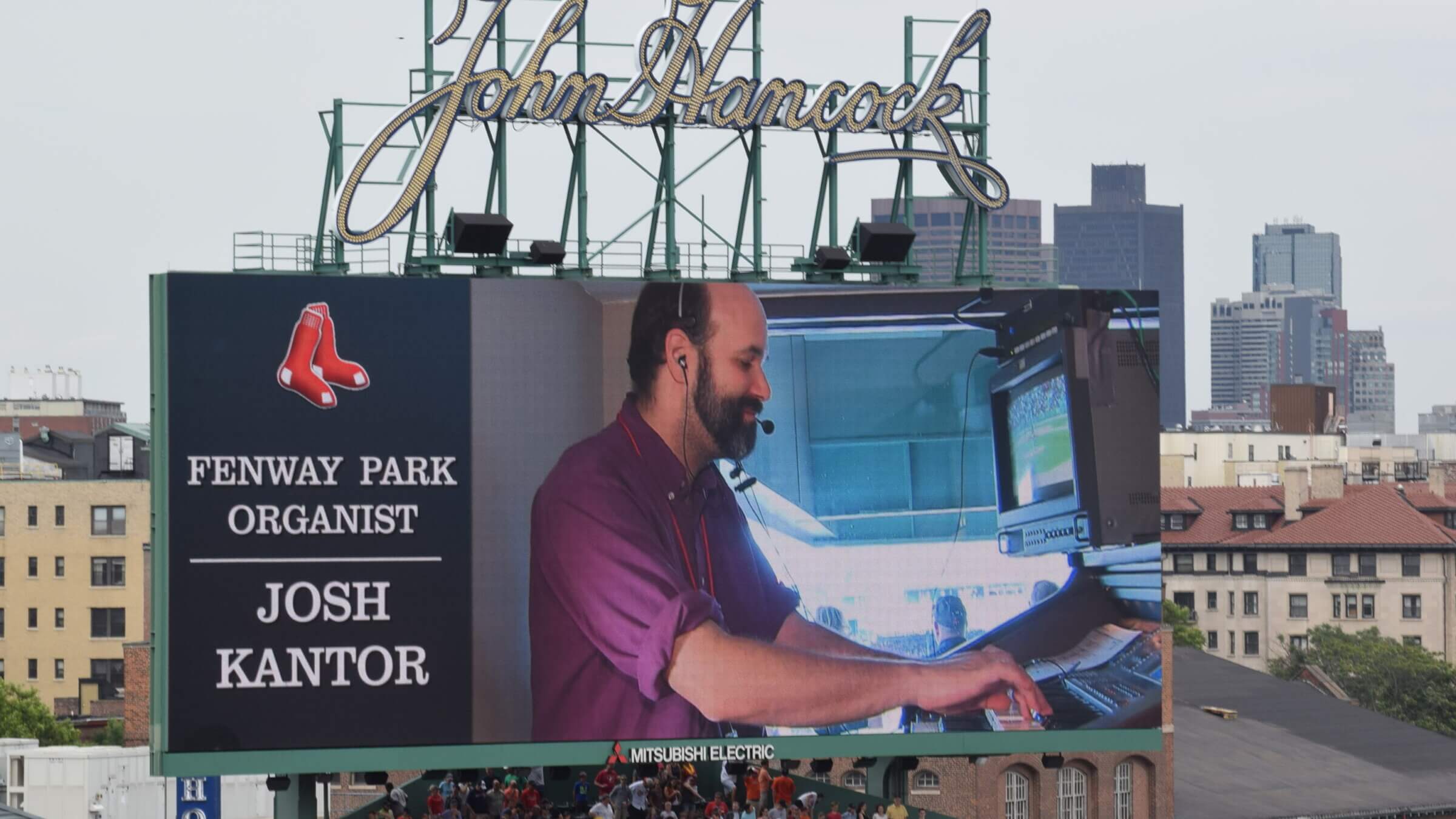
Josh Kantor appears on the Fenway jumbotron. Courtesy of Josh Kantor
Is Josh Kantor the Cal Ripken, Jr. of baseball park organists?
Kantor, born in Athens, Ga. and raised as a teen in Evanston, Ill., has played the organ at Fenway Park during Boston Red Sox baseball games for 21 years. Over that span of time, Kantor has not missed a game.
“The streak is still alive,” Kantor told me with a chuckle. “Counting regular season and post-season, the total is currently 1,698 games.”
Kantor, 52, tips his hat to the Lou Gehrig of baseball organists, the retired Chicago Cubs’ Gary Pressy, who retired in 2019 with 2,633 straight games, and notes that his friend and inspiration, Nancy Faust, played 41 years for the Chicago White Sox “and missed only three days to give birth and that was it.”
Kantor began life as an Atlanta Braves fan, then a Chicago White Sox fan, and finally, a Red Sox fan. In his first year in Boston, 2003 — the Year of Great Disappointment — the Sox lost to the Yankees in the American League Championship Series in Game 7 on an Aaron Boone walk-off homerun. But the next year, he experienced the joy longtime fans felt when the team broke the famous, if fatuous, “Curse of the Bambino” and won the World Series. And then there were three more World Series titles in 2007, 2013 and 2018. Oh, and a fair number of down years in between.
Kantor is arguably the best-known ballpark organist working today — “Maybe I’m a tiny bit famous,” he said — and part of that is because of the sideman work he’s done outside the ballpark. Kantor has accompanied the Waco Brothers and played with R.E.M.’s Peter Buck and Mike Mills in the Baseball Project. He is in the Split Squad, with Blondie drummer Clem Burke and the Fleshtones’ guitarist Keith Streng.
Mentored by the cantor
Kantor was a rock ‘n’ roll kid growing up – “Yeah, I was in lousy garage bands,” he said – but they mostly rehearsed in basements and took gigs at middle school dances and house parties. He also went through a jazz phase and took a couple of music theory classes, considering himself “lucky to have access to those kind of classes as a high school student.”
He was also attending synagogue services, but “when I was 15, I was losing interest in organized religion in general, as so many 15-year-olds do.” Ah, but there was a bright spot. He loved the music, the great melodies played by the cantor at his synagogue, Jeff Klepper.
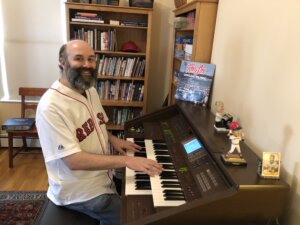
“I was unaware at that time that he was actually a big deal in 20th century Jewish music,” Kantor said of Klepper. “He had kind of rewritten the melodies of a lot of traditional pieces and prayers and those versions had been adapted at a lot of reformed Jewish congregations and Jewish summer camps. Some people knew his name, but even if you didn’t know his name you knew his melodies and I always thought they were great. I didn’t even know he had written them, let alone that they were influential around the country.”
“He was a wonderful, caring guy,” said Kantor. “He created these opportunities for me to be involved in the music and started inviting me on the piano at the Friday night services and he would kind of stretch me. He would start me with a light load of songs to learn and then he would give me a heavy load and that led to my first case of having to learn a load of songs in a short period of time.”
Kantor really didn’t really process Klepper’s level of fame until he went to college at Brandeis University in 1990. “I met all these kids my age who had gone to different summer camps and synagogues and they said, ‘Jeff Klepper! That’s awesome!’ and I had no idea.”
Playing the hits
Kantor plays “Take Me Out to the Ballgame” at every seventh inning stretch. But most everything else that comes out of his organ during a game is because of an ask. Fans shoot him requests on X, and he makes a lot of quick choices, playing anywhere from 20 seconds of a song to two-and-half minutes, the latter mostly during a pitching change.
“My job is to play hits,” he said. “That could be old hits, that could be new hits. Things that people will recognize and be inclined to hum along with or sing along with. If it’s something that has cross-generational appeal that’s great because you can grab a wider swath. TV and movie themes go over really well. I keep Twitter [X] live during the game. If they send it, I’ll see and if I know it, more often than not I’ll get to it.”
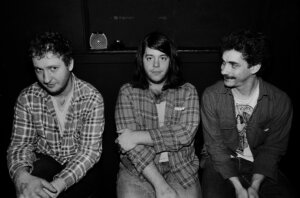
Kantor also has a penchant for working semi-obscure, indie rock songs into his repertoire. “It’s a small hook-in,” Kantor said, “but a way for the people who are very obsessed with non-mainstream taste, a fun experience for them.” He added that, when he played the song “Who Will Save Rock and Roll,” he imagined fans saying, “That’s cool, I never thought I would hear a Dictators song at a baseball game.”
“Songs that have a great melody, that can get stuck in your head and sing along to, they’re almost always going to translate well regardless of genre,” Kantor says. “The Ramones are such a fantastic example of something where the energy level is off the charts. You can tap your toe and hum along to it; it’s so infectious.”
Kantor says he’s pretty much open to any and all genres, as long as the melody works. Picks include songs from Roy Orbison, the Kinks, Frank Sinatra, David Bowie, Dua Lipa and Tina Turner. “With an organ version, something may be sweet or unique about it and it’s likely to tickle fans,” Kantor said.
When out-of-town fans come to Fenway, they’ll often ask for songs from bands from their city – for instance, Minnesota Twins fans will often shoot off Replacements and Husker Du requests. And if Kantor notices – or is alerted to – the fact that a musician is in the house, he’ll play some of their music.
When the Rascals guitarist Gene Cornish came to a game in 2013, he played two of the band’s songs, and Cornish’s face lit up. It was his first game at Fenway and this diehard Yankee fan found himself rooting for his archrival as the game unfolded. (The Red Sox won.)
When Green Day was at Fenway, Kantor played one of their tunes.
“One of them posted on social media, ‘That was so cool, the organist just played one of my songs!’” Kantor said. “That happens somewhat regularly, I tend to know who’s in town and who is coming to the park, or some artist will tweet ‘Hey, I’m at Fenway!’ and I’ll play a song and surprise them. One morning I woke up and got an email from [the late Monkee] Mike Nesmith and he said ‘I heard you played my song last night, thanks for doing that, it means a lot to me.’”
Early in the 2020 pandemic, Kantor, along with his wife the Rev. Mary Jane Eaton, launched a Facebook Live show called 7th Inning Stretch, playing requests and talking baseball trivia. He’s been joined by Hall of Fame baseball scribe/guitarist Peter Gammons, Death Cab for Cutie’s Ben Gibbard and Belly’s Tanya Donelly, among many others.
A great American pastime
The position of ballpark organist, which began in 1941 at the Cubs’ Wrigley Field, has had its ups and downs over the decades. “It’s fluctuated,” Kantor said. “Some teams let it go and then gave it a try again after putting it to rest. There’s a little bit of a resurgence now in the way teams think it can be part of how their social media is done. They see the organist can be an asset not only by playing live organ music but also having that direct interaction with fans during games.”
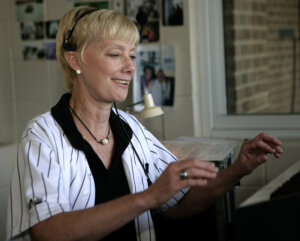
Kantor said that in the time he’s been doing it, the number of parks with organists has hit a low of 12, a high of 20 and is currently at 16 or 17.
“Baltimore’s Camden Yards showed people the best version of trying to have the best of both worlds,” Kantor said. “Modern amenities but also antiquated charm. That became the model newer stadiums tried to follow, trying to have the modern and the traditional and it’s caused them to reconsider: ‘Maybe we should have an organist.’”
Kantor is still in touch with Klepper, who, Kantor said, “moved to Boston probably 20 years ago. He was working at a synagogue here and he would occasionally come to Red Sox games and say hello. We remained friends, and are still friends.
“He retired four or five years ago and invited me to perform at his retirement party and it was just really lovely. He is a special mentor/friend type of person to me and as it happens, it’s directly connected to Judaism and Jewish musicians.”
But, when Klepper attends a Red Sox game, does Kantor fete him with one of his songs?
“I don’t know if I ever have,” Kantor said. “ I’d feel like that could be a slippery slope. You start playing liturgical music and other faiths will want you to do that and then you have to figure out how to do that in a non-invasive, non-rude way. And it’s also a lot of work to learn that stuff.”
A message from our Publisher & CEO Rachel Fishman Feddersen

I hope you appreciated this article. Before you go, I’d like to ask you to please support the Forward’s award-winning, nonprofit journalism during this critical time.
We’ve set a goal to raise $260,000 by December 31. That’s an ambitious goal, but one that will give us the resources we need to invest in the high quality news, opinion, analysis and cultural coverage that isn’t available anywhere else.
If you feel inspired to make an impact, now is the time to give something back. Join us as a member at your most generous level.
— Rachel Fishman Feddersen, Publisher and CEO



